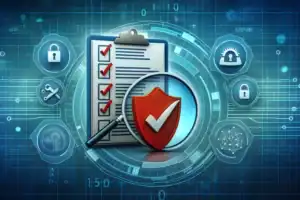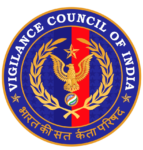Birth, marriage, and death certificate verification
Birth, marriage, and death certificate verification play crucial roles in various legal, administrative, and personal matters
Birth Certificate Verification:
- Birth Certificate as Legal Proof: Birth certificates serve as legal proof of a person’s birth, including their date, place, and parentage. Verification ensures the authenticity and accuracy of the information contained in the certificate.
- Personal Identification: Birth certificate verification confirms the identity of an individual and is often required for official purposes such as obtaining a passport, driver’s license, or social security number.
- Age Verification: Birth certificates are used to establish an individual’s age, which is necessary for enrolling in schools, participating in sports activities, and determining eligibility for certain benefits or services.
- Genealogical Research: Verification of birth certificates is essential for genealogical research, tracing family histories, and establishing lineage or inheritance rights.
- Immigration and Citizenship: Birth certificate verification is a crucial step in the immigration process, as it helps determine an individual’s eligibility for immigration or citizenship applications.
- Medical and Healthcare Purposes: Birth certificate verification is necessary for medical purposes, including obtaining medical insurance coverage, accessing healthcare services, and ensuring accurate medical records.
- Citizenship and Nationality: Birth certificate verification is crucial in establishing an individual’s citizenship or nationality, as it provides evidence of being born in a particular country.
- Adoption and Guardianship: Verifying birth certificates is important in adoption and guardianship proceedings, ensuring legal documentation of a child’s birth and parentage.
- Social Services and Benefits: Birth certificate verification is required for accessing social services and benefits such as child support, welfare programs, and government assistance.
Marriage Certificate Verification:
- Legal Validation of Marriage: Marriage certificates provide legal recognition of a marriage and verification ensures the authenticity and legality of the marriage contract.
- Rights and Benefits: Verification of marriage certificates is necessary to claim various rights and benefits associated with marriage, such as spousal support, inheritance, tax benefits, and insurance coverage.
- Divorce Proceedings: In cases of divorce, verifying the marriage certificate establishes the legal existence of the marriage and is required for initiating divorce proceedings or legal separations.
- Immigration and Visa Applications: Verification of marriage certificates is essential for immigration and visa applications, particularly for sponsoring a spouse’s immigration or proving a genuine marital relationship.
- Name Change: Marriage certificates are often used as evidence for legally changing one’s name after marriage. Verification ensures the accuracy of the certificate for this purpose.
- Social and Family Planning: Government agencies and social welfare organizations may require verification of marriage certificates to provide social benefits, family planning services, or assistance programs.
Death Certificate Verification:
- Legal Confirmation of Death: Death certificates provide legal confirmation of an individual’s death and verification ensures the accuracy of the information contained in the certificate.
- Estate Settlement: Verification of death certificates is necessary for settling the estate of the deceased, including the distribution of assets, transfer of property ownership, and resolving financial matters.
- Insurance Claims and Benefits: Death certificate verification is crucial for initiating life insurance claims, survivor benefits, or pensions for the beneficiaries of the deceased.
- Burial and Funeral Arrangements: Verification of death certificates is required for making burial or cremation arrangements, obtaining permits, and fulfilling legal requirements associated with the disposition of the deceased’s remains.
- Genealogical Research: Death certificate verification aids in genealogical research, tracking family histories, and establishing the date and cause of death for ancestry records.
- Legal Proceedings: Death certificates may be required as evidence in legal proceedings, such as wrongful death lawsuits, inheritance disputes, or settling debts of the deceased.
- Legal and Financial Matters: Verification of death certificates is essential for settling the deceased person’s legal and financial affairs, including debt repayment, closing bank accounts, and transferring assets.
- Insurance and Benefits Claims: Death certificate verification is necessary for filing life insurance claims, accessing survivor benefits, and obtaining pensions or retirement funds on behalf of the deceased.
Fill out the form below to avail our Verification Services.
They are truly the most reliable team I could count on. I love their service and they are very experienced at what they do. They are reliable, flexible and sincere to all of their clients. I will definitely recommend them to my coworkers and friends. recommend them to all of my coworkers and friends
Ms. Reema
I have hired Spy verification Services for employee background check. The have done the job in a very professional way. I Like the services and loved to hire again.
Mr. Rajesh
Frequently Asked Questions (FAQs)
1. Why is birth certificate verification necessary?
Birth certificate verification is necessary to establish legal proof of birth, confirm identity, determine citizenship or nationality, verify age, maintain accurate family records, and comply with regulations and policies related to immigration, adoptions, and government benefits.
2.How can I verify the authenticity of a birth certificate?
- Check for official seals and watermarks, as they indicate authenticity.
- Cross-reference the details on the certificate with other official documents or records.
- Contact the relevant government agency or vital records office to confirm the certificate’s validity.
- Verify the signature of the issuing authority or registrar.
- Consider using online verification services provided by trusted sources or government agencies.
3.How long does the birth certificate verification process take?
- It can take a few days to a few weeks, depending on the efficiency of the issuing authority or vital records office.
- Online verification services may provide instant or quicker results.
- Additional time may be required if there are discrepancies or the need to request further documentation.
- Urgent or expedited processing options may be available for certain cases.
- It is recommended to check with the specific authority or service provider for estimated processing times.
4.Why do I need to verify my marriage certificate?
- It provides legal confirmation of your marriage, ensuring its validity and authenticity.
- Verification is often required for official purposes such as immigration applications, changing your last name, or accessing spousal benefits.
- It establishes your marital status, which may be necessary for property ownership, inheritance rights, or divorce proceedings.
- Verification ensures compliance with legal and administrative requirements for various transactions and obligations.
5. How can I verify the authenticity of a marriage certificate?
- Check for official seals, stamps, or holograms on the certificate as indicators of authenticity.
- Validate the certificate with the issuing authority or vital records office that issued it.
- Cross-reference the details on the certificate with other supporting documents, such as identification or divorce records.
- Verify the signature and credentials of the officiant or registrar who solemnized the marriage.
6.Can I verify a marriage certificate from another country?
- Contact the embassy or consulate of the country where the marriage took place to inquire about their verification process. They can guide the necessary steps and documentation required for verification.
- Depending on the country, you may need to have the marriage certificate translated into the official language of the verifying authority or have it authenticated through an apostille or similar certification process to ensure its validity in your country.
7.Why is death certificate verification important?
- Legal Confirmation: Death certificate verification provides legal confirmation of an individual’s death, establishing the official record and date of their passing.
- Estate Settlement: Verification of the death certificate is crucial for settling the deceased person’s estate, including distributing assets, transferring property ownership, and resolving financial matters.
- Insurance and Benefits Claims: Verification of the death certificate is necessary for filing life insurance claims, accessing survivor benefits, and obtaining pensions or retirement funds on behalf of the deceased. It ensures the proper disbursement of benefits to the rightful beneficiaries.
8.How can I verify the authenticity of a death certificate?
- Check for official seals and signatures: Look for official seals, stamps, or watermarks on the certificate. Verify the signatures of the issuing authority or registrar.
- Cross-reference information: Compare the details on the death certificate with other official documents or records, such as identification documents or obituary notices, to ensure consistency.
- Contact the issuing authority: Reach out to the vital records office or relevant government agency responsible for issuing death certificates to confirm the certificate’s validity and verify the information provided.
9.Can death certificate verification help in settling the deceased person's financial matters?
- Asset Distribution: Death certificate verification is essential for identifying and distributing the deceased person’s assets according to their will, trust, or applicable laws of inheritance.
- Debt Resolution: Verification of the death certificate allows for the proper handling of the deceased person’s outstanding debts, ensuring that creditors are notified and appropriate actions are taken.
- Insurance and Benefits Claims: Verification of the death certificate is necessary for filing life insurance claims, accessing survivor benefits, and obtaining pensions or retirement funds on behalf of the deceased
10.How long does the death certificate verification process take?
- Timelines: The verification process typically takes a few days to several weeks, depending on the efficiency of the issuing authority or vital records office.
- Additional Factors: Factors such as the completeness of documentation, complexity of the case, and the responsiveness of involved parties can influence the overall processing time. It’s advisable to inquire with the specific authority or service provider for estimated timelines.









